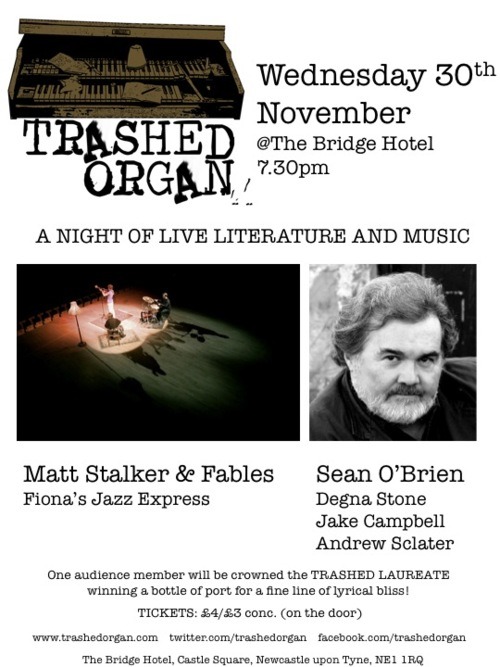November: a strange time of year, I always find. Not quite Christmas; not the height of winter (but dark and cold enough to feel like it); not quite the end of the year. But a time, nonetheless, where we – certainly I – start looking back over the past 11 months, looking forward to the next 12.
As a writer, this year has been the most successful to date. I graduated from my Creative Writing MA in Chester Cathedral in March. The Distinction, which I received in large part because of doing very well on my final Writing Project, was the icing on the cake. I felt vindicated; as if I’d made up for what I know now was a pretty shoddy undergraduate dissertation in 2009. A great day and a fantastic start to the year. Half way through my MA, I began to notice that I was starting to think of myself far more as a writer than a student. This is surely the best praise I can give the course...
Or, at least until what happened next. I am loathed to hammer home this next point for fear of inadvertently slipping into complacency or smugness. I know, in the grand-scheme of the writing, publishing and reading world, I am still only on the first rung of the ladder, but winning the Andrew Waterhouse Award from New Writing North in July certainly compounded that feeling I’d started to experience on the MA: that I’m a writer and I can make this successful as well as enjoyable. It felt fantastic to be recognised amongst some other great writers – some of whom have gone on to become good friends. The award is both a privilege and a responsibility, though, and I will endeavour to live up to some of the fantastic poets who’ve won the award in the past.
In the past few months I’ve been doing quite a bit with Red Squirrel Press and it is with great pleasure that I can confirm they’ll be putting out my debut pamphlet of poems in May next year. I intend to blog thoroughly about the pamphlet once some final details have been sealed, but for now I am still slightly buzzing that I’ll be able to have physical, published copies of a collection of some of my ‘finished’ poems to sell and promote at readings.
On a related note, one such reading in which I will be doing just that is at
Zest! in Chester on May the 21st next year.
Zest! has become a bit of an institution on the Cheshire literature scene and I am thrilled that I’ve been accepted as a guest reader there. The first time I read poetry in public was as a slightly over-eager 18 year old, back in March 2007, at their first event in Alexander’s Jazz bar. To return to the stage, with published poems, will be brilliant.
The writing year starts to wind down for me after the final reading I plan to do:
Trashed Organ at The Bridge Hotel on November 30th, with Sean O’Brien, Degna Stone and Andrew Sclater. The event's organisers, John, Melanie and Rob, have welcomed me three times this year alongside some incredibly inspiring literary and musical talents, and I look forward to working with them more next year.
Recently I’ve started a Christmas temp job in Waterstone’s and I’ve experienced the rekindling of a desire to read about thirty different books simultaneously. I’d already been thinking about literary resolutions, but thanks to the job, I’ve now found even more things I’d like to read. I’ll blog about these bookish resolutions later, as well as some other exciting things, but for now, it’s time to start taking stock of 2011, an excellent year and hopefully one which will provide the foundations for more writing, better writing and greater success next year.

